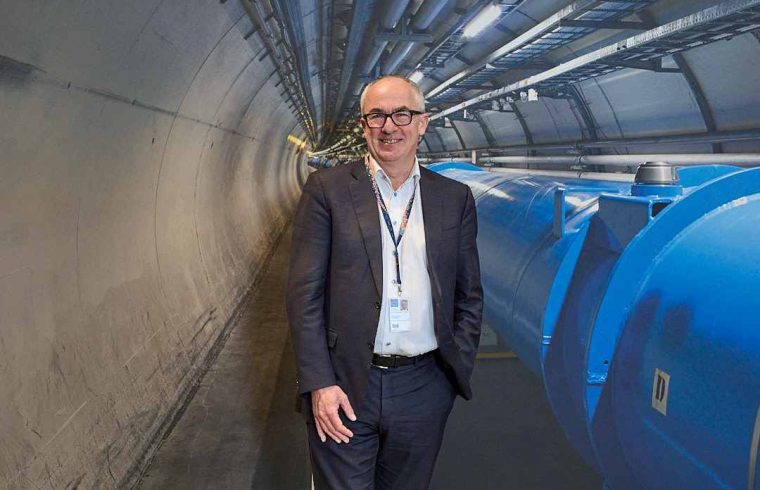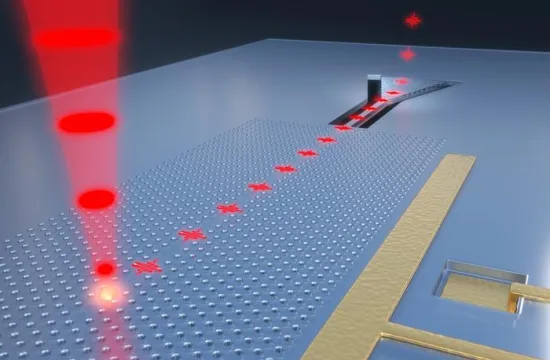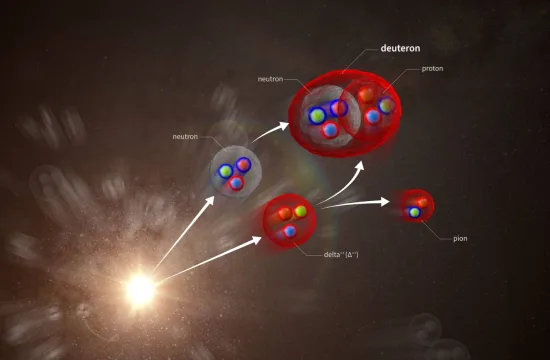
Geneva. The CERN Council has selected British physicist Mark Thomson as the Organization’s next Director-General on November 6, 2024. The appointment will be formalized at the December session of the Council and Professor Thomson’s five-year mandate will begin on 1 January 2026.
“Congratulations to Professor Mark Thomson on his selection as the next CERN Director-General from January 2026,” said CERN’s President of Council, Professor Eliezer Rabinovici. “I extend my heartfelt thanks to all the exceptional candidates. The outstanding qualities Mark Thomson displays give CERN Council assurance that he will successfully take his place in the line of visionary Directors-General who have guided CERN.”
“Mark Thomson is a talented physicist with great managerial experience,” said CERN Director-General Fabiola Gianotti. “I have had the opportunity to collaborate with him in several contexts over the past years and I am confident he will make an excellent Director-General. I am pleased to hand over this important role to him at the end of 2025.”
“Built on long-term European collaboration, CERN is a beacon of scientific excellence and innovation, providing global leadership in research at its most fundamental level,” said Professor Thomson. “CERN’s mission is to unravel the mysteries of the universe, contributing to our collective pursuit of knowledge. CERN’s exciting future promises groundbreaking research and discoveries that will shape our understanding of physics and, in doing so, inspire future generations of young scientists. I am honored to become CERN’s Director-General and am committed to pursuing the Organization’s scientific mission, further developing technologies that will benefit society as a whole, while uniting nations in a shared commitment to advancing science for the betterment of humanity.”
Professor Thomson is currently the Executive Chair of the Science and Technology Facilities Council (STFC) in the United Kingdom and a Professor of Experimental Particle Physics at the University of Cambridge. He has dedicated much of his career to CERN, where he initially contributed to precision measurements of the W and Z bosons in the 1990s, as part of the OPAL experiment at CERN’s Large Electron–Positron Collider. At CERN’s Large Hadron Collider (LHC), he has been a member of the ATLAS collaboration.
Since completing his doctorate in particle physics at the University of Oxford, Professor Thomson has played a significant role in advancing neutrino physics and research for future colliders. Notably, he served as co-spokesperson for the Deep Underground Neutrino Experiment (DUNE), a collaborative project led by Fermilab, which CERN supports through its neutrino platform and the construction of large cryostats to be installed deep underground in South Dakota. He has also played a pivotal role in the design and optimization of detectors for future colliders, particularly for linear electron-positron colliders such as the International Linear Collider (ILC) and the Compact Linear Collider (CLIC).
Mark Thomson is credited in over 1000 publications and authored the widely adopted textbook Modern Particle Physics, used in universities globally. Beyond his research, he has held various research leadership and oversight roles at national and international level, including serving as the UK delegate to CERN’s Council since 2018.







